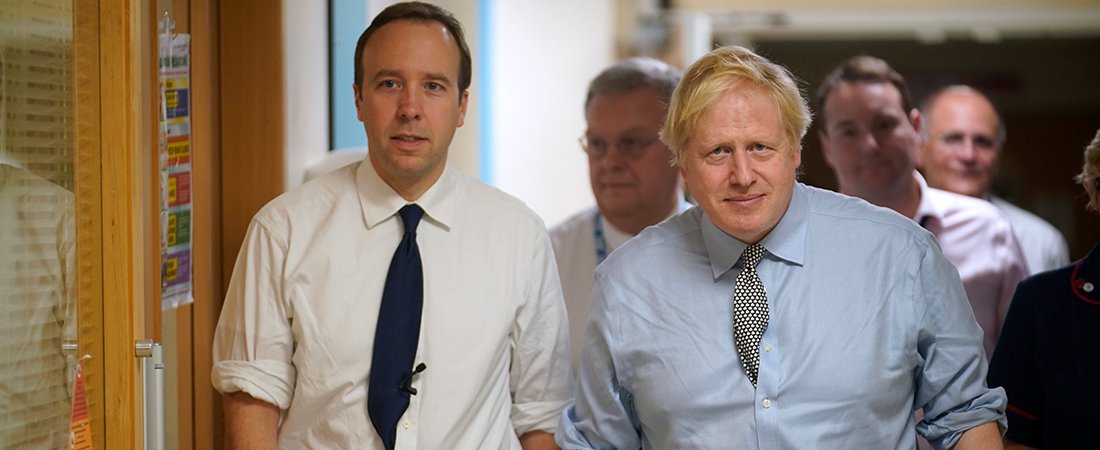Preventative healthcare policies must sit firmly on the agenda of a Government looking to restart the UK and reset the NHS after this coronavirus crisis. Tragically, death and serious illness inflicted by Covid-19 has provided context and urgency for prevention in healthcare, loosely defined as action taken to decrease the chance of getting a disease or condition.
Public Health England (PHE) cites pre-existing health conditions and comorbidities as a key contributing factor to mortality rates and severe cases of Covid-19, such as hypertension, cardiovascular disease obesity and type 2 diabetes.
Portland’s perception polling, first reported in June, tells us that well-over half (59 per cent) of the UK public agree that Government should spend more of the health budget on encouraging healthier behaviours.
Reportedly, the then-incoming Prime Minister Johnson, assuming office on 24 July 2019, had not endorsed Health Secretary Matt Hancock’s Prevention Green Paper which resulted in it being ‘buried’ deliberately on 22 July 2019 when it was published late at night without alerting media.
Having berated ‘sin taxes’ or any ‘creep of the nanny state’ less than a year ago, Boris Johnson is now reportedly telling colleagues to prepare for a ‘more interventionist‘ approach to the major public health issue of obesity.
If Johnson’s recent U-turn on obesity tells us anything, it’s that the impact on public health of Covid-19 has renewed Government’s willingness to embrace the idea that prevention is better than cure.
Why the sudden change in policy?
The Prime Minister himself cites his weight as the reason he required intensive care while battling coronavirus. We have witnessed a resulting shift in communications on obesity from the top of Government which seems to have resonated with the public. Our polling shows that 56 per cent aim to exercise more after the Covid outbreak, and 48 per cent would like to improve their diet.
For Government, there is an attractive financial incentive to enact preventative health policies. As it stands, diabetes care and treatment accounts for approximately one tenth of the NHS budget. Obesity and its related conditions costs the NHS £6.05 billion annually.
Dominic Cummings’ trip to Barnard Castle demonstrated the increased scrutiny on how individual actions influence protect public health. Social media shaming of crowds in parks and on beaches, snapped and shared during the height of lockdown, illustrate a blame culture for undermining the nation’s health – and indeed the NHS – that we’ve not experienced before.
This focus on individual responsibility is supported by our findings. 67 per cent of the UK public believe that everyone has a responsibility to keep themselves healthy to limit pressure on the NHS.
This begs the question: whose responsibility is it to prevent ill health – the Government’s, via state intervention, or the individual’s, through self-care?
Reducing health inequalities relies on successful preventative approaches
The unifying, guiding principle of the NHS has been universal access to treatment, free at the point of use.
However, Portland’s polling data suggests that this may not align with public opinion: 33 per cent of survey respondents agreed that after Covid-19, the NHS should prioritise patients who have healthier behaviours over patients who do not.
The idea of a patient pecking order is dangerous given the existing inequalities in health outcomes inequalities that have been thrust into the spotlight by the Covid crisis. The PHE report on coronavirus disparities found that BAME patients have a 10-50 per cent higher risk of death from Covid compared to white British patients.
An additional PHE report released last week on the impact of Covid-19 on BAME communities which attributed coronavirus disparities to social and economic inequalities, racism, discrimination and stigma, occupational risk and inequalities in the prevalence of conditions that increase the severity of the disease.
If public opinion is moving toward a system of providing better, faster access for some over others, then it is all the more urgent that Government addresses inequity in access to health detection, management and treatment, particularly in prevention services that have felt heavy financial pressures since changes in April 2013 placed responsibility of local authorities.
How effective communication and engagement can help
As we live longer lives and consequently spend more time living with what might be several conditions that require management, companies will need to demonstrate how their medicines, vaccines and devices complement whole-person preventative healthcare and overall wellbeing.
Challenges can arise in communications as messaging relating to public health risk factors, such as obesity, continues to be divisive. The public are increasingly embracing self-care and expecting more from everyone as individuals. However, communications around prevention should inspire and support, without excluding or isolating sections of society.
The opportunity lies in policy development. Companies looking to engage with Government and the NHS will need to demonstrate their value in preventative healthcare, addressing inequalities and creating capacity for the NHS.

